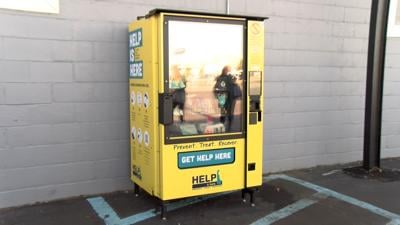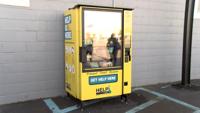DOVER, DE- Delaware has launched a new initiative to combat the ongoing substance abuse crisis by installing five harm reduction vending machines across the state.
Located in Wilmington, Newark, Dover, Milford, and Georgetown, these vending machines offer essential harm reduction tools to community members. Available 24/7, they are designed to provide lifesaving resources to those in need.
Joanna Champney, director of the Delaware Division of Substance Abuse and Mental Health, highlighted the variety of items available in the machines, all aimed at reducing overdose risks and promoting health and safety.
“These vending machines will contain a multitude of different items, including Narcan kits for overdose reversal, xylazine and fentanyl test strips, test kits people can take home, and also items like dental hygiene kits and wound care kits."
This initiative is the latest step in Delaware’s ongoing efforts to address the substance abuse crisis and reduce overdose deaths in the state.
Champney also addressed the state’s progress in tackling overdose deaths: “Last year, we lost 527 people to drug overdose or drug poisoning, and we are trending in a better direction, with nearly 2% fewer deaths than the year before. But one death is still too many.”
While the number of overdose deaths is declining, Lynn Morrison, CEO of Brandywine Counseling and Community Services, believes stigma surrounding substance abuse and mental health continues to be a significant barrier for many people seeking help.
“The more we can eliminate the stigma, the more people will feel comfortable getting the care they need. brIt’s making things more normalized—people see that help is here, and hopefully it will bring more people in.”
The harm reduction vending machines provide a discreet, private way for individuals to access lifesaving tools. By simply entering their zip code, people can obtain necessary resources without needing to provide any other personal information.
Morrison believes the confidentiality offered by the machines will encourage more individuals to seek help. “This is another way to get harm reduction services into the hands of those who need it—especially in a judgment-free way. It offers a sense of privacy and access that isn’t always available.”
These five vending machines are part of a pilot program. Officials plan to analyze the data collected from the machines to determine where additional machines might be beneficial.




